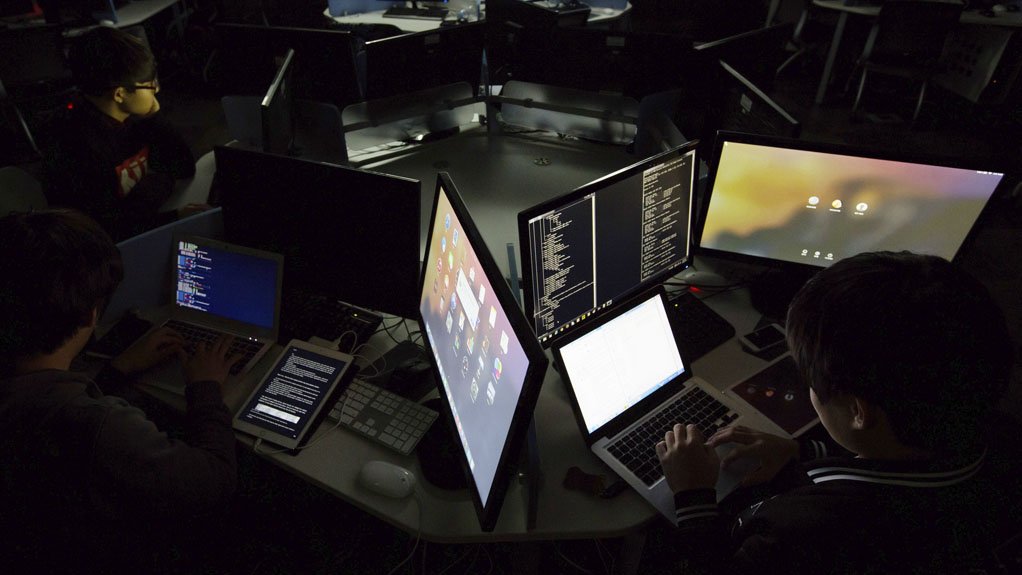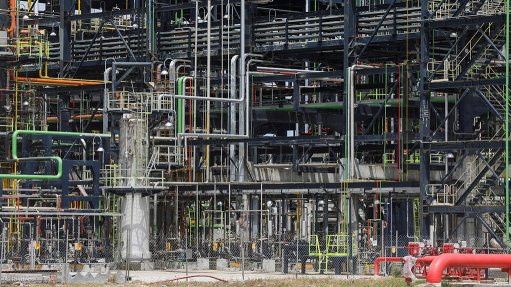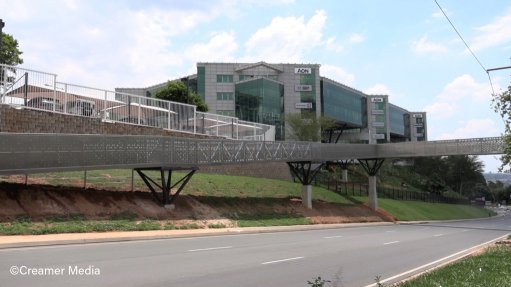Cybercrime again leads Allianz Risk Barometer this year
Cyber incidents, business disruption and natural catastrophes have emerged as the top three areas of concern for companies globally this year, according to the latest Allianz Risk Barometer.
The Allianz Risk Barometer is a business risk ranking compiled by Allianz Group’s corporate insurer Allianz Commercial, together with other Allianz entities, every year since 2011.
It incorporates the views of 3 778 risk management experts in 106 countries and territories including CEOs, risk managers, brokers and insurance experts.
Cyber incidents such as data breaches and ransomware attacks are the biggest worry for companies this year, particularly in Africa and the Middle East. However, these regions second-largest concern is changes in legislation and regulation, followed by macroeconomic development.
Fraud, corruption and critical infrastructure blackouts are also among the top risks for companies in Africa and the Middle East, more so than in other regions.
After last year’s “super election year” across the world and the potential for trade wars, changes in legislation and regulation is a top five risk at number four in the survey. Natural catastrophes were also increasingly prevalent last year, justifying its position as the third-biggest risk for companies.
The biggest riser in this year’s risk barometer is climate change, which rose from number seven to number five, achieving its highest-ever position.
“2024 was an extraordinary year in terms of risk management and the results of our annual Allianz Risk Barometer reflect the uncertainty many companies around the globe are facing right now. What stands out this year is the interconnectivity of the top risks.
“Climate change, emerging technology, regulation and geopolitical risks are increasingly intertwined, resulting in a complex network of cause and effect,” explains Allianz Commercial chief underwriting officer Vanessa Maxwell.
She suggests that businesses adopt a holistic approach to risk management and consistently strive to enhance their resilience.
Moreover, cyber incidents, with 38% of the barometer respondents being concerned about it, ranked as the most important risk for companies globally for a fourth year in a row and by a higher margin than ever.
Cyber risks are a top peril in most countries, including the Americas, Argentina, France, Germany, India, Kenya, Mauritius, Morocco, Nigeria, the UK and South Africa.
More than 60% of respondents identified data breaches as the cyber exposure that companies fear most, followed by attacks on critical infrastructure and physical assets with 57%.
Allianz Commercial cyber risk consulting head Rishi Baviskar says that, for many companies, cyber risks are being exacerbated by the rapid development of AI. He deems it likely that cybercrime will remain a top risk for companies going forward, especially given a growing reliance on technology across industries.
OTHER RISKS
With business disruption having ranked either topmost or second-most on the risk barometer for the past decade, Allianz explains business interruption is typically a consequence of events such as a natural disaster, a cyberattack or outage, as well as insolvency and political risks.
Various examples from 2024 highlight why companies still see business interruption as a major threat to their business model.
“Houthi attacks in the Red Sea led to supply chain disruptions owing to rerouting of container ships, while incidents such as the collapse of the Francis Scott Key Bridge in Baltimore also directly impacted global and local supply chains,” says Allianz Commercial risk advisory services head Michael Bruch.
He adds that supply chain disruptions with global effects occur about every 1.4 years, and the trend is rising. Those disruptions cause major economic damages, ranging up to 5% to 10% of product costs and additional downtime impacts.
“The push for technological advancement and efficiency is affecting the resilience of supply chains. Automation and digitization have significantly accelerated processes, which sometimes overwhelm individuals due to the rapid pace and complexity of modern technology,” Bruch explains.
However, when implemented effectively, these technologies can also enhance resilience by providing better data analytics, predictive insights, and more agile response capabilities, he adds.
He emphasises the need for investing in resilience, echoing Maxwell’s view.
Moreover, with last year having been the hottest year on record and the world having experienced multiple natural catastrophes such as hurricanes, floods and drought, climate change is rising in prominence as a business risk, hand-in-hand with natural catastrophes.
Last year business insurance losses surpassed $100-billion as a result of climate-change-induced factors.
On the political front, Allianz says political risks and violence dropped one place to the ninth position on the barometer this year, despite ongoing geopolitical and economic uncertainty in the Middle East, Ukraine and Southeast Asia.
Allianz says political risks and violence are becoming more concerning for large companies and smaller companies alike, reaching a number seven rank on the risk barometer for large companies and a number ten rank for smaller companies.
Allianz chief economist and chief investment officer Ludovic Subran says the fear of trade wars and protectionism is increasing. He cites analysis by Allianz and others finding that, within the last decade, export restrictions on critical raw materials increased by a factor of five.
“Tariffs and protectionism may be top of the list of the new US government, but on the other hand there is also the risk of a ‘regulatory wild west’, particularly around AI and cryptocurrencies.
“Meanwhile, sustainability reporting requirements will be high on the agenda in Europe in 2025,” he adds.
The effect of new tariffs will be similar as with overregulation, ramping up the costs for all companies affected. However, not every regulation is inherently bad, Subran points out, explaining inefficient administrations can influence companies’ ability to comply with regulations and operate.
His overall outlook for this year is that companies will struggle amid trade wars and the lack of a corresponding digital strategy to global trends.
Article Enquiry
Email Article
Save Article
Feedback
To advertise email advertising@creamermedia.co.za or click here
Comments
Press Office
Announcements
What's On
Subscribe to improve your user experience...
Option 1 (equivalent of R125 a month):
Receive a weekly copy of Creamer Media's Engineering News & Mining Weekly magazine
(print copy for those in South Africa and e-magazine for those outside of South Africa)
Receive daily email newsletters
Access to full search results
Access archive of magazine back copies
Access to Projects in Progress
Access to ONE Research Report of your choice in PDF format
Option 2 (equivalent of R375 a month):
All benefits from Option 1
PLUS
Access to Creamer Media's Research Channel Africa for ALL Research Reports, in PDF format, on various industrial and mining sectors
including Electricity; Water; Energy Transition; Hydrogen; Roads, Rail and Ports; Coal; Gold; Platinum; Battery Metals; etc.
Already a subscriber?
Forgotten your password?
Receive weekly copy of Creamer Media's Engineering News & Mining Weekly magazine (print copy for those in South Africa and e-magazine for those outside of South Africa)
➕
Recieve daily email newsletters
➕
Access to full search results
➕
Access archive of magazine back copies
➕
Access to Projects in Progress
➕
Access to ONE Research Report of your choice in PDF format
RESEARCH CHANNEL AFRICA
R4500 (equivalent of R375 a month)
SUBSCRIBEAll benefits from Option 1
➕
Access to Creamer Media's Research Channel Africa for ALL Research Reports on various industrial and mining sectors, in PDF format, including on:
Electricity
➕
Water
➕
Energy Transition
➕
Hydrogen
➕
Roads, Rail and Ports
➕
Coal
➕
Gold
➕
Platinum
➕
Battery Metals
➕
etc.
Receive all benefits from Option 1 or Option 2 delivered to numerous people at your company
➕
Multiple User names and Passwords for simultaneous log-ins
➕
Intranet integration access to all in your organisation



















